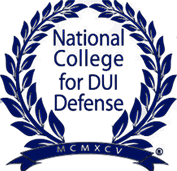
Degrees of Assault in Colorado
Why You Need an Assault Charge Defense Lawyer
Colorado state laws define assault as a physical attack against another party. The attack doesn’t have to be intentional. Just as long as you physically harm another, you can potentially be charged with one of the following three degrees of assault.
Third-Degree Assault
The least serious charge is a Class 1 misdemeanor that carries a possible jail sentence of up to two years. To be convicted of third-degree assault, the prosecution needs to prove that you intentionally or recklessly caused physical harm to another person. The injury can be minimal, and it doesn’t matter whether you intended to harm the other person. In such cases, consulting a 3rd-degree assault attorney is crucial, as you could potentially be convicted of this charge for something as minor as accidentally giving someone a bloody lip.
Second-Degree Assault
The penalties for second-degree assault seem to be more in line with the actions covered by this charge. There are six types of actions that qualify as engaging in second-degree assault. These are:
- Intentionally harming another person
- Intentionally harming another person with a weapon
- Recklessly harming another person with a weapon
- Harming someone while interfering with a police officer doing their job
- Applying physical force to a police officer doing their job
- Drugging someone without their consent.
This crime is a Class 4 felony that comes with a prison sentence of two to six years. The first four actions are considered to be crimes of violence and result in a minimum penalty of five years in prison. In such legal matters, consulting a skilled Denver domestic violence defense lawyer is essential to navigate the complexities of the charges and work towards a favorable outcome.. If you are facing such charges, consulting with an experienced felony defense lawyer can be crucial in navigating the complexities of the legal system and potentially mitigating the severity of the sentence.
First-Degree Assault
Finally, first-degree assault is a Class 3 felony that carries a minimum sentence of 10 years in prison. To convict you of this charge, the prosecutor has to prove one of the following:
- You intentionally seriously injured someone.
- You intentionally permanently disfigured or disabled someone.
- Your actions put someone at great risk of death, either intentionally or due to an indifference to their safety.
- You threatened with a weapon or attempted to cause serious injury to a firefighter or police officer while they were doing their job.
Both intent and the severity of the injuries are taken into account for this degree of assault charge.
If you are facing assault charges, never give up. Assault charge defense lawyer Kevin Cahill can provide you with several legal options for avoiding jail time or possibly even avoiding prosecution. Contact the Law Office of Kevin Cahill today at 720-548-2990 to schedule a free consultation with an experienced lawyer for assault charges in Denver.
Common Defenses Against Assault Charges
How Denver Assault Charge Lawyer Kevin Cahill Will Protect Your Rights
An experienced assault charge defense lawyer will try to get your charges dismissed if possible and reduced if not. The following are some successful approaches Kevin Cahill has used to fight these charges.
You Acted in Self-Defense
Imagine the scenario. You are watching the Rockies play the Cubs while enjoying a beer in the bar. Your team scores a home run, and you go wild. Someone nearby takes offense at your excitement and takes a swing at you. You fight back, but only to protect yourself.
While this might seem like a clear-cut case of self-defense, some prosecutors won’t see it that way. They may think you overreacted because you were drunk, or some of the other guy’s friends might have lied to the police. A lawyer for assault charges in Denver will investigate the incident and try to find evidence that proves you were defending yourself. If, for example, the bar has camera footage or the bouncer backs up your story, they will likely be able to convince the prosecutor to drop the charges.
You Didn’t Cause the Injuries
In some assault charges, the injuries charged don’t match the injuries caused by the defendant. For example, assume you got into a fight with someone and gave them a black eye. While that might technically be third-degree assault, most prosecutors won’t press charges over such a minor injury, unless there were other aggravating factors. However, if the victim ran off angry and then carelessly fell down a flight of stairs, they could lie and tell the authorities that you pushed them down the stairs. And suddenly you are facing second-degree assault charges. Denver assault lawyer look for inconsistencies like this and use them to get charges dropped or reduced.
Mental State
While intent isn’t needed to prove all types of assault, it is a critical element of first-degree and some types of second-degree assault. If you have been charged with a crime that requires intent, Kevin Cahill may be able to cast doubt on any proof that you had the requisite intent.
Just because the police or a prosecutor claims you have committed a crime, that doesn’t mean you are guilty of the charges. Assault charge defense lawyer Kevin Cahill will help you avoid getting railroaded by the legal system. Contact the Law Office of Kevin Cahill at 720-548-2990 to learn more about your legal options.
Why Choose Kevin Cahill?
You Shouldn’t Spend Time in Jail When You Don’t Deserve It.
Kevin Cahill became a criminal defense attorney over a decade ago because he wanted everyone accused of a crime to be treated with respect. While he can’t change the justice system alone, he is doing everything in his power to protect the rights of those facing criminal charges in Denver. Kevin Cahill genuinely cares about his clients and gives every case his full attention. He is honest and makes sure that every client understands their legal options and the limits of what he can do for them. This has resulted in thousands of satisfied clients.
Only you know what you want from a Denver assault charge lawyer. But if you want an assault charge defense lawyer who will listen to your side of the story and will help you get the results you are looking for, Kevin Cahill is that lawyer. Want to learn more? Your initial consultation is free, and there is no obligation to choose the services of this law firm.
Frequently Asked Questions
Before you choose a lawyer for assault charges in Denver, you should ask questions pertinent to your case. While Kevin Cahill will happily answer any questions you have during your free consultation, the following are answers to some of the most common questions about assault charges in Denver.
If you have additional questions, please ask during your free consultation.
Contact Denver Assault Charge Lawyer Kevin Cahill Today
Assault charges are never something to take lightly. They carry significant prison sentences, even at the lowest level. If you are facing these charges in Denver, you need a lawyer like Kevin Cahill to protect your rights.
Don’t hesitate after getting arrested for assault charges in Denver. Contact the Law Office of Kevin Cahill at 720-548-2990 right away and ask to take advantage of the free case evaluation and consultation.

ATTORNEY KEVIN CAHILL
Denver Defense Lawyer Kevin Cahill never assumes that your case is a lost cause. He is a confident and fearless litigator who refuses to back down when he is fighting to protect the rights of his clients. Regardless of whether you are facing a felony or a misdemeanor, it is vital that you take the charges seriously and seek out legal representation as soon as possible so you can start building your defense. [ ATTORNEY BIO ]




